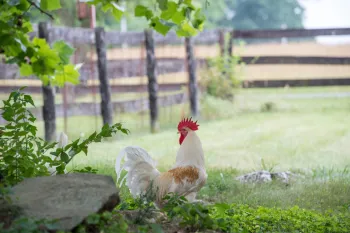ANNAPOLIS—As the 2025 legislative session ends, the Maryland legislature has proven that even during one of the most challenging political environments in recent years, support for animal welfare remains a top priority among lawmakers.
The session included a historic first in humane law as a prohibition on the breeding of roosters (SB375/HB513) passed with bipartisan support. The session also saw the passage of SB152/HB89, which closed a loophole in the state code, thus ensuring that separate charges can be brought for each animal in cases where an individual is accused of cruelty to multiple animals. SB896/HB1152, a first-of-its-kind law approved by the legislature, requires landlords with five or more rental properties to make their pet policy accessible on their websites, via rental search engines, and through hard-copy rental applications, providing greater transparency for renters with pets.
“This year’s session opened with an air of trepidation as the state faced so many issues, including a budget crisis, funding imperative agencies and the elimination of some federal agencies with potential implications for the state,” said Stacey Volodin, Maryland state director for Humane World for Animals, formerly called the Humane Society of the United States. “However, our leaders have shown that they are able to work through serious issues including humane legislation that helps animals and the many Marylanders who care about their welfare.”
Lawmakers also passed additional animal protection measures, including, Sb318/HB643, a bill that allows veterinarians to participate in Maryland’s public service loan forgiveness program, thus expanding access to veterinary care in the state; HB731/HB635, which established the Maryland Connectivity Coalition, bringing together state agencies, nongovernmental organizations, and other parties interested in protecting endangered wildlife from habitat fragmentation and car strikes via wildlife crossings and other means for creating safe pathways for animals, preventing collisions and saving lives.
This session was also notable for the introduction of two measures that will resurface as legislative priorities in the future. One sought to end the cruel confinement of egg-laying hens in cages so small they cannot spread their wings, while the other sought to prohibit the use of animal testing where it is not required and ensure stronger welfare standards so long as such testing continues.
